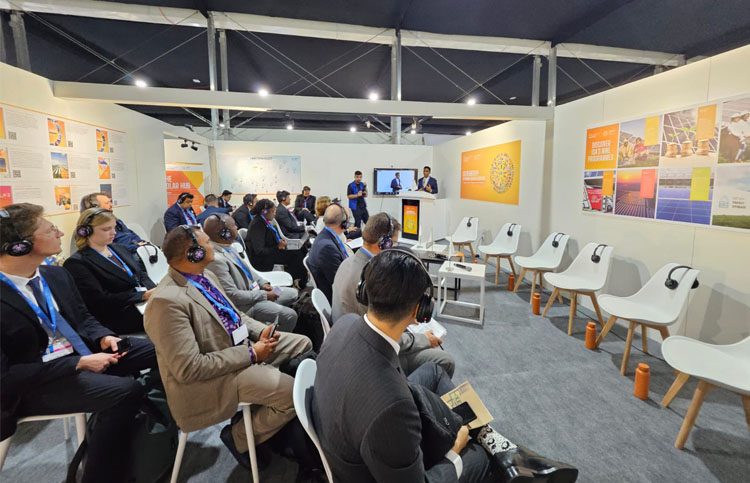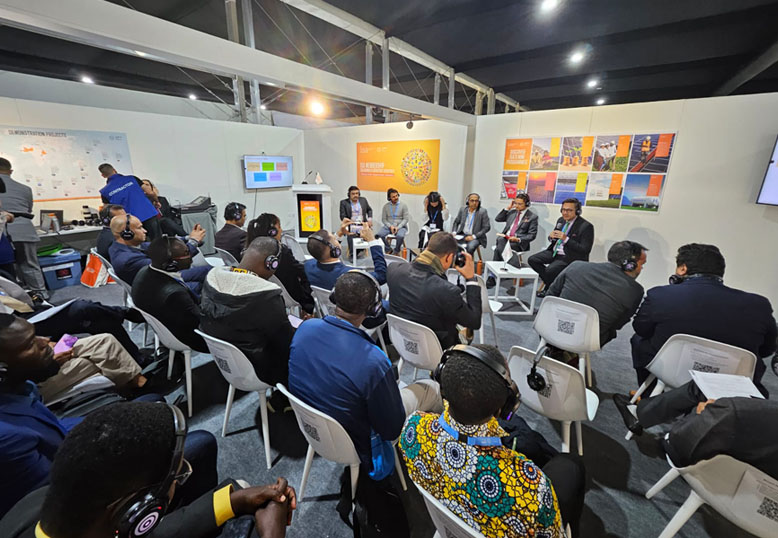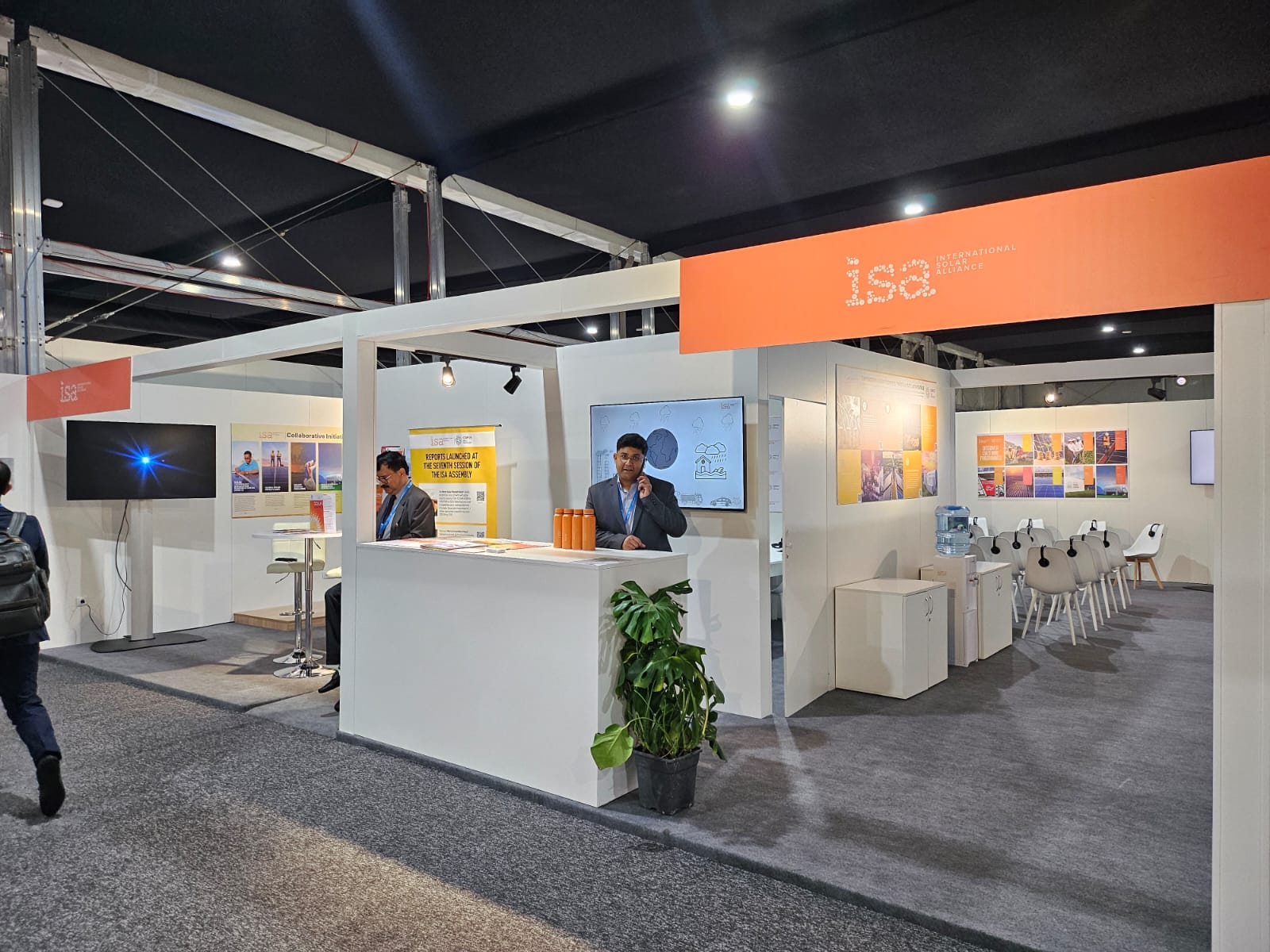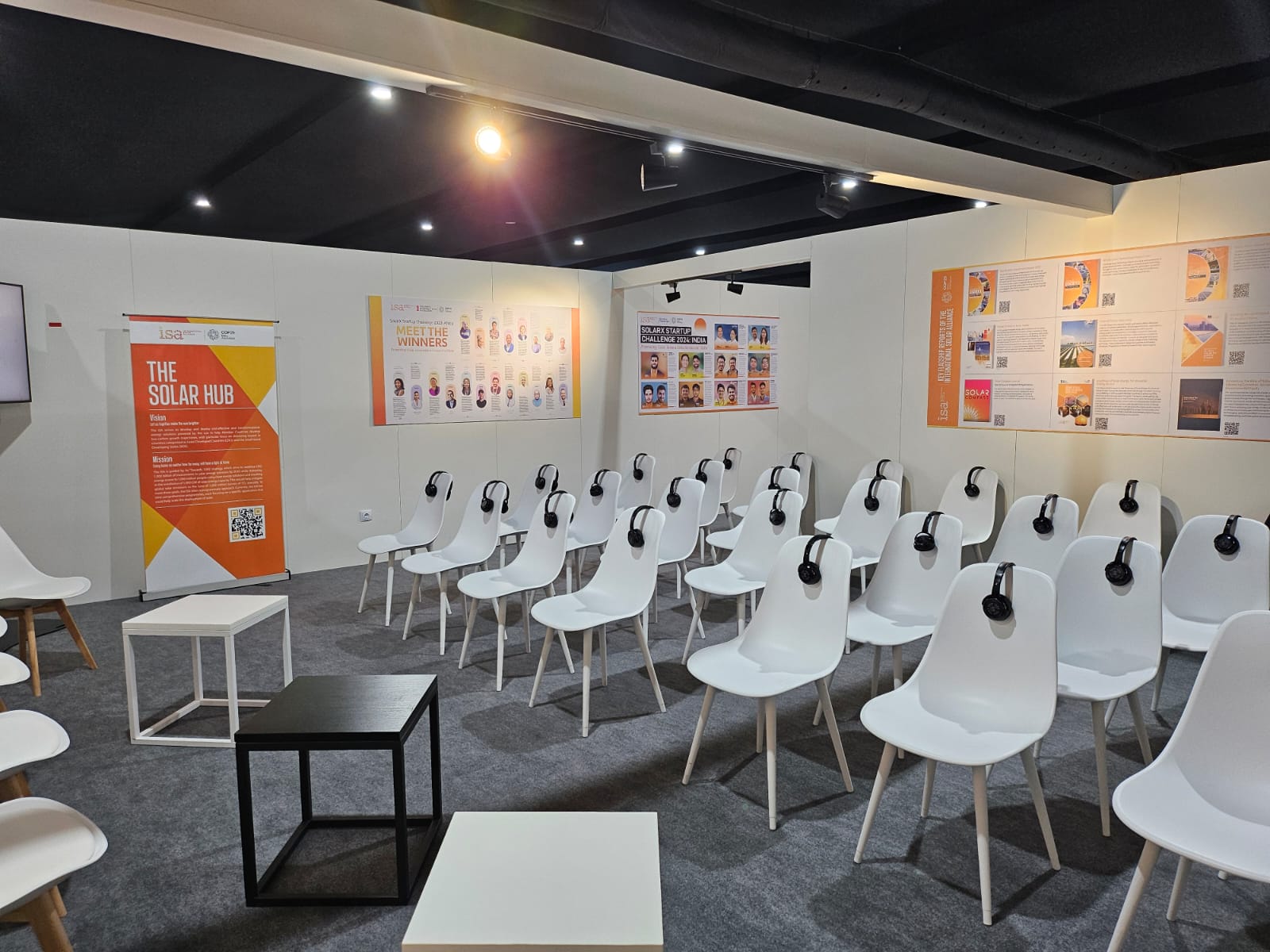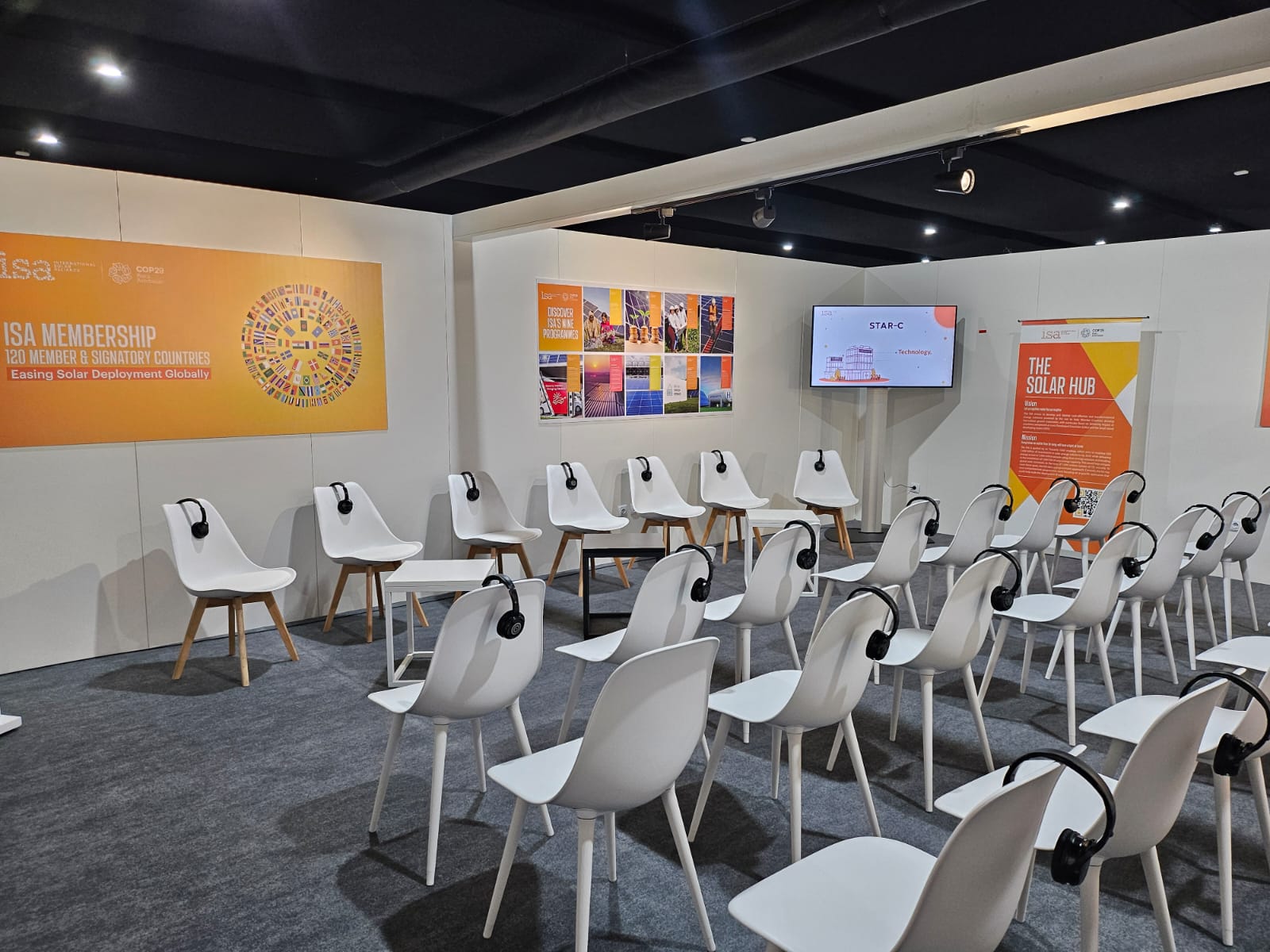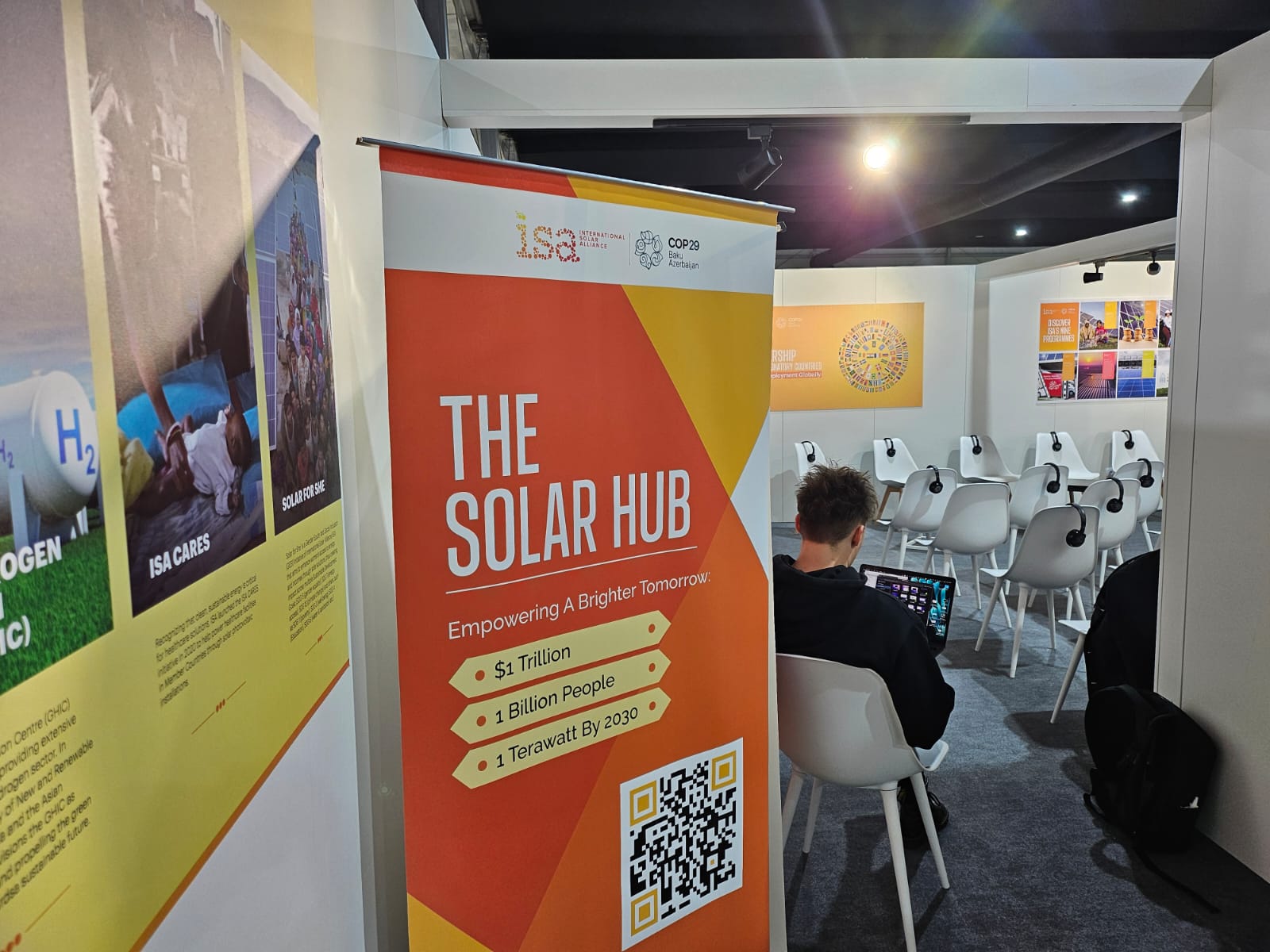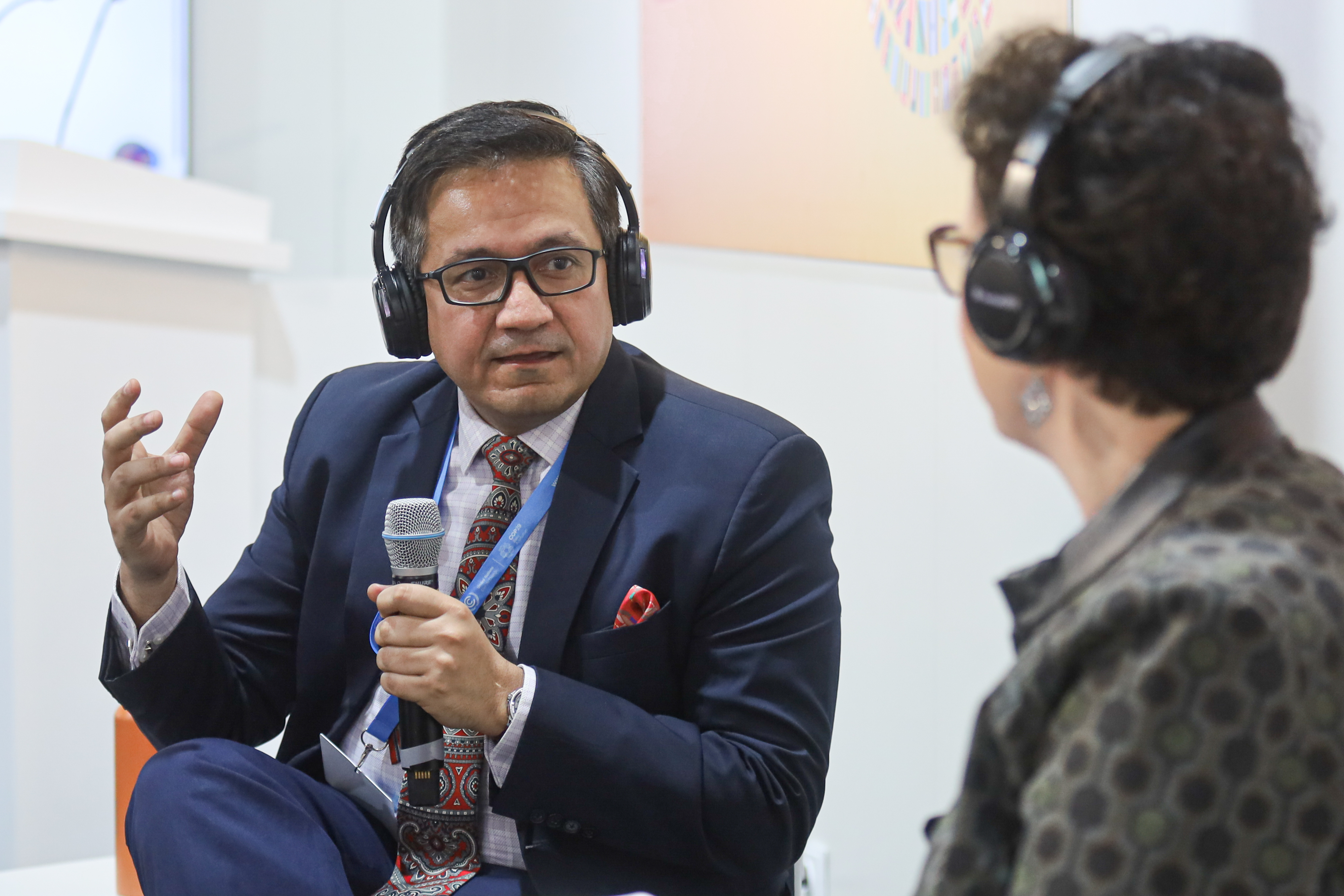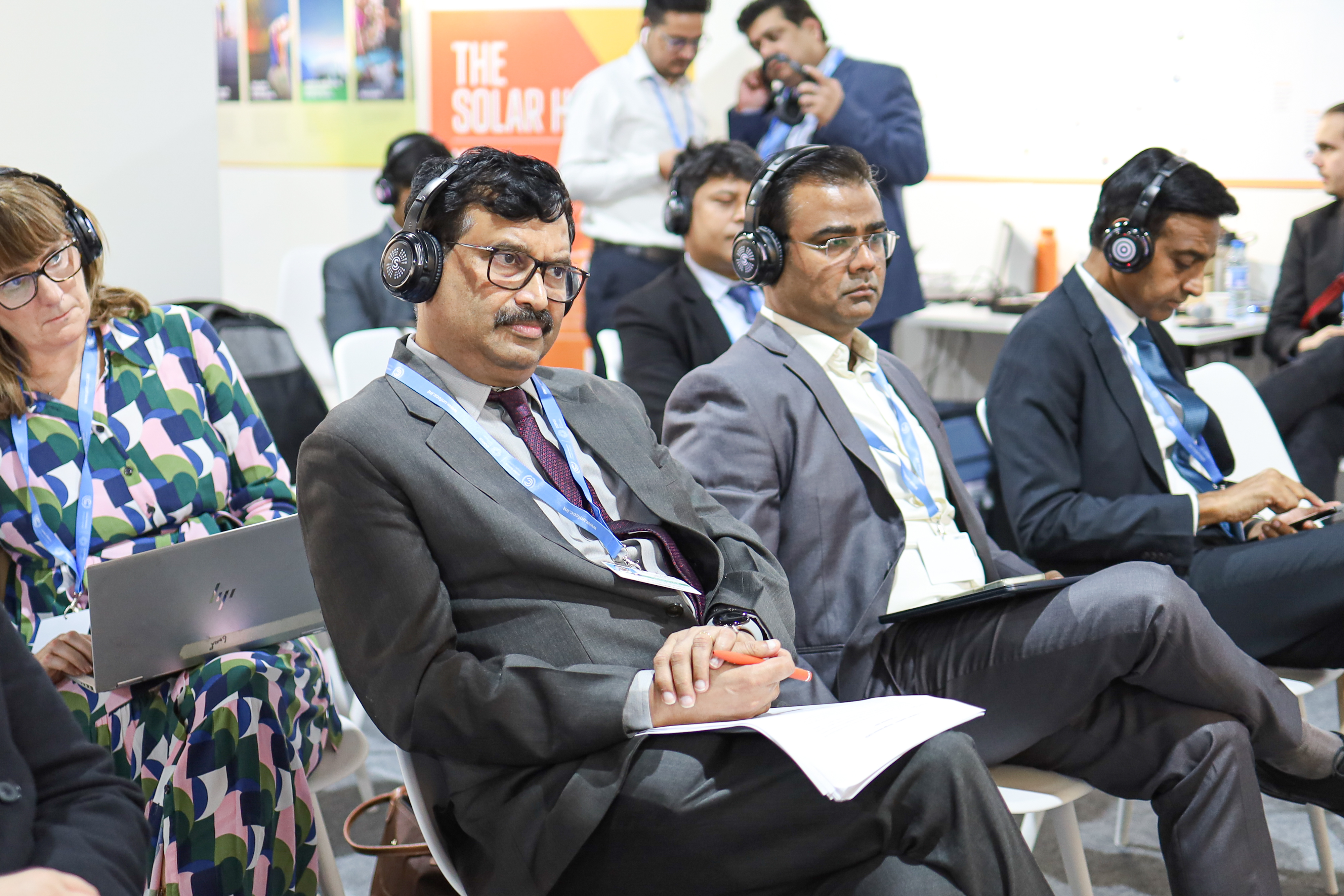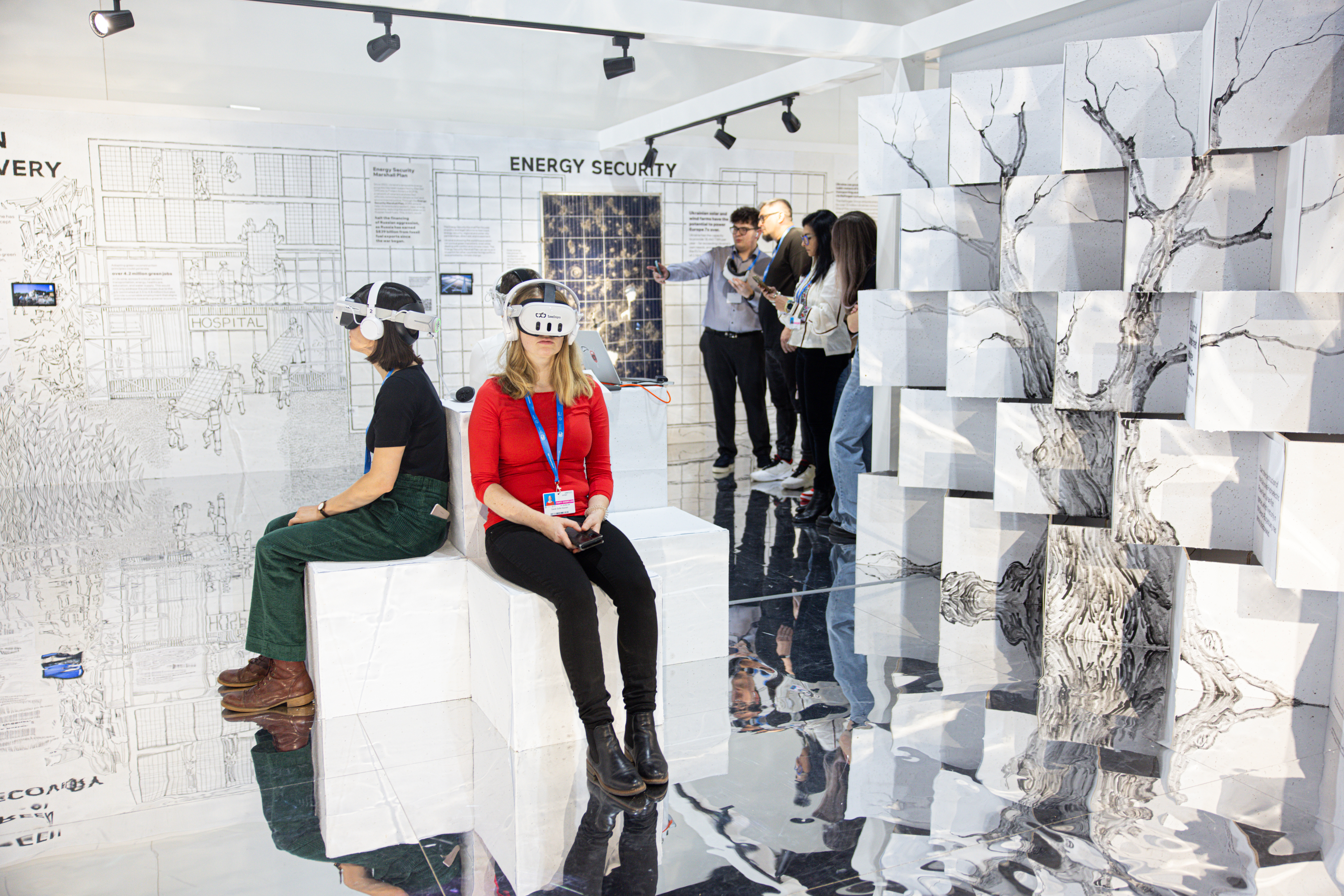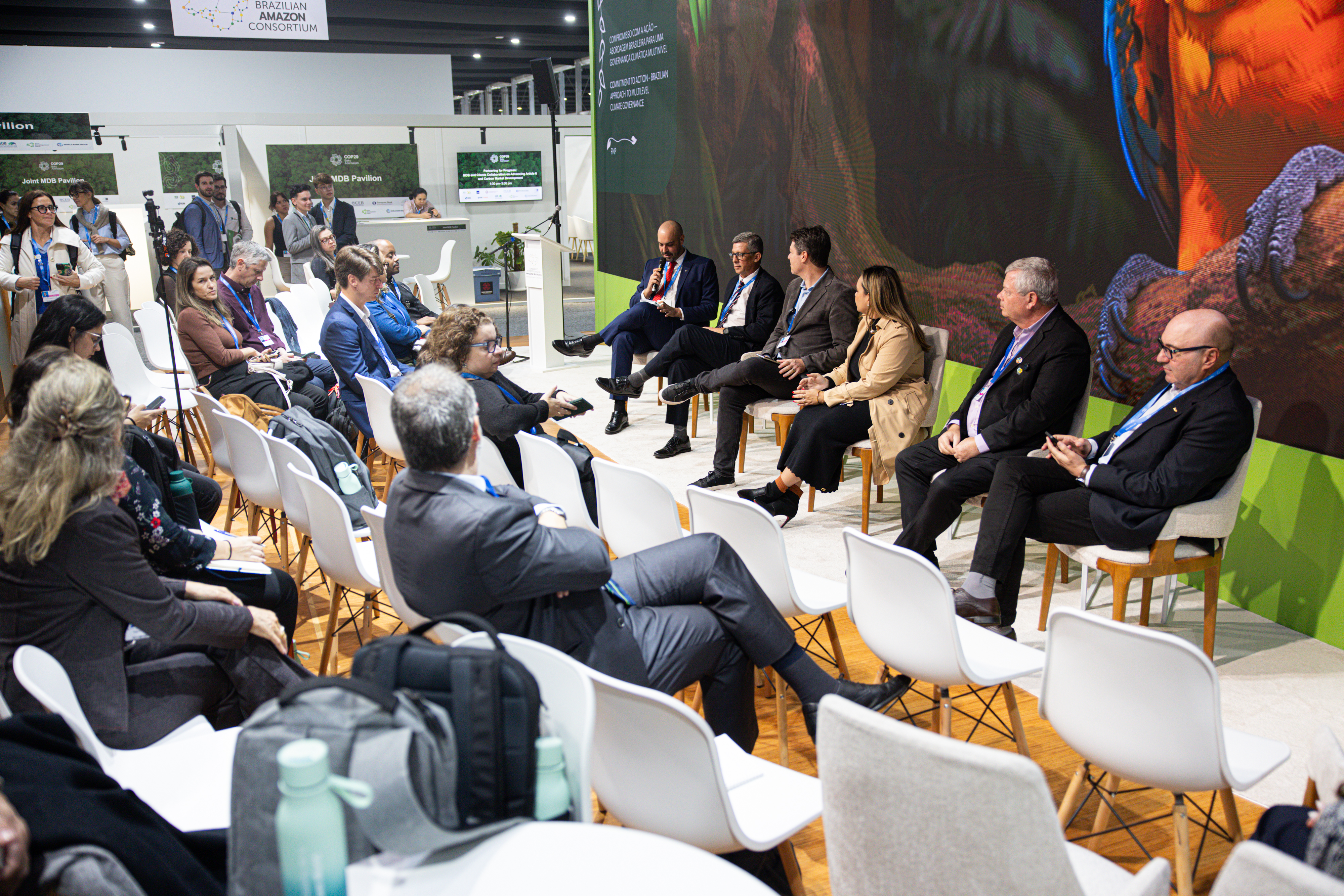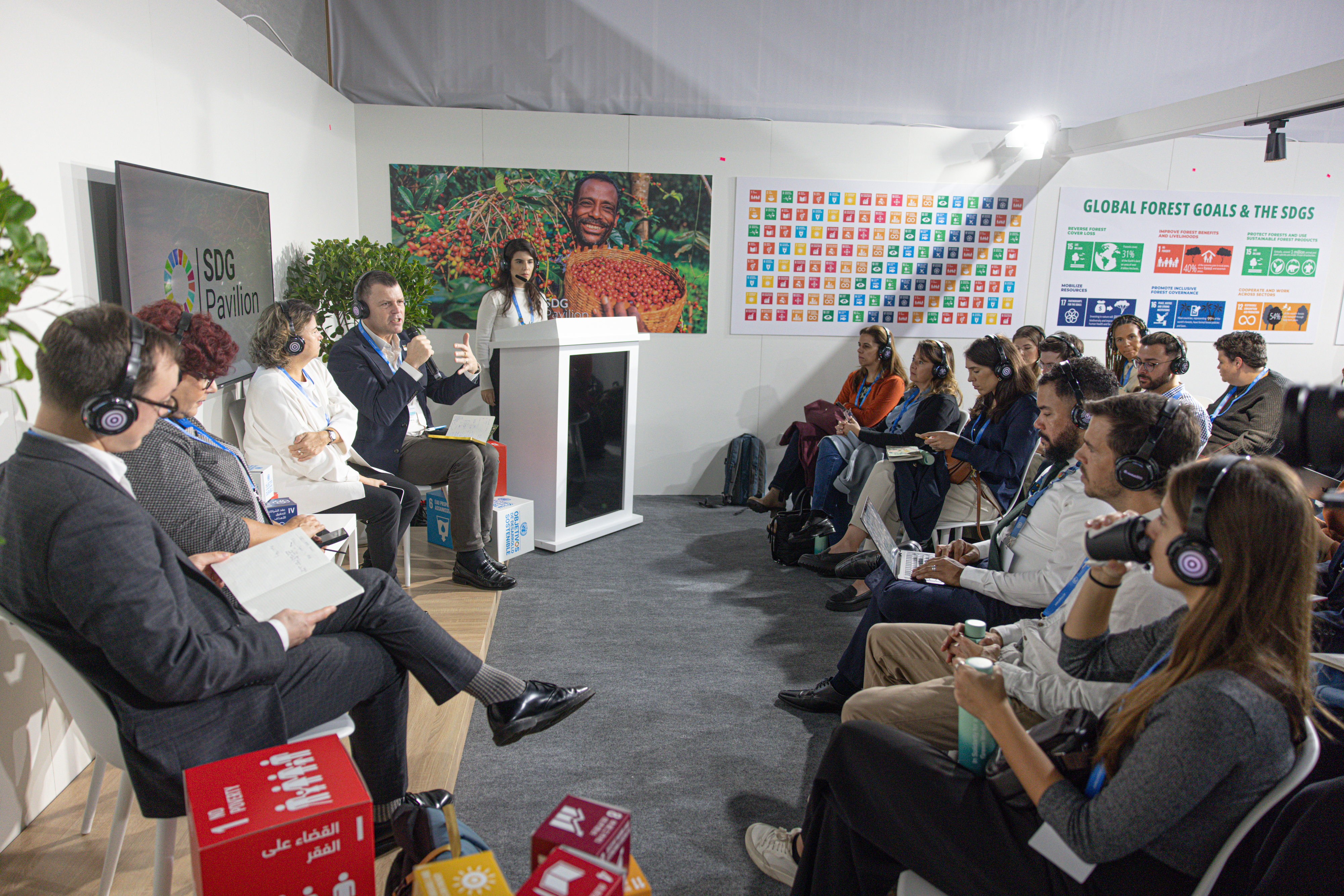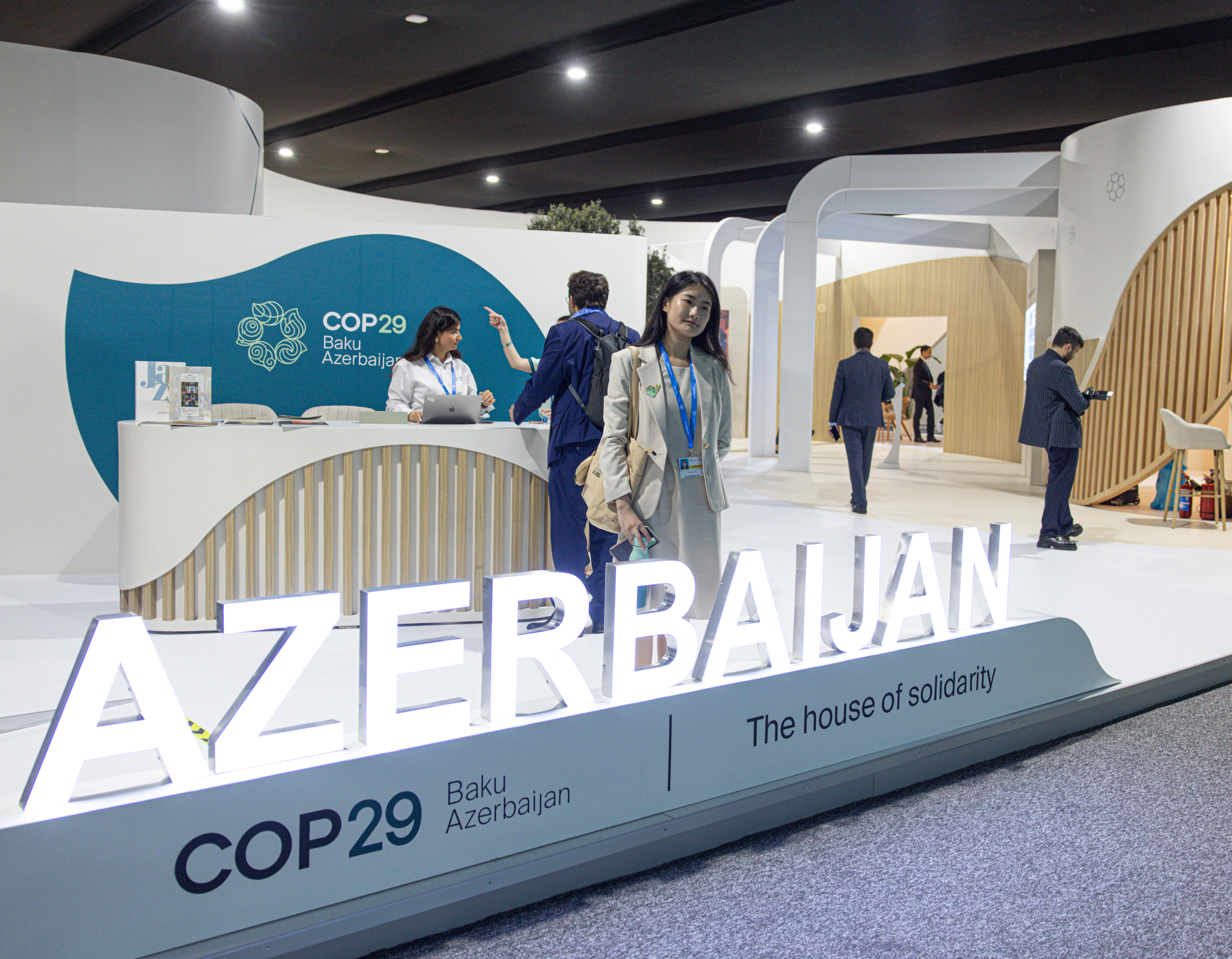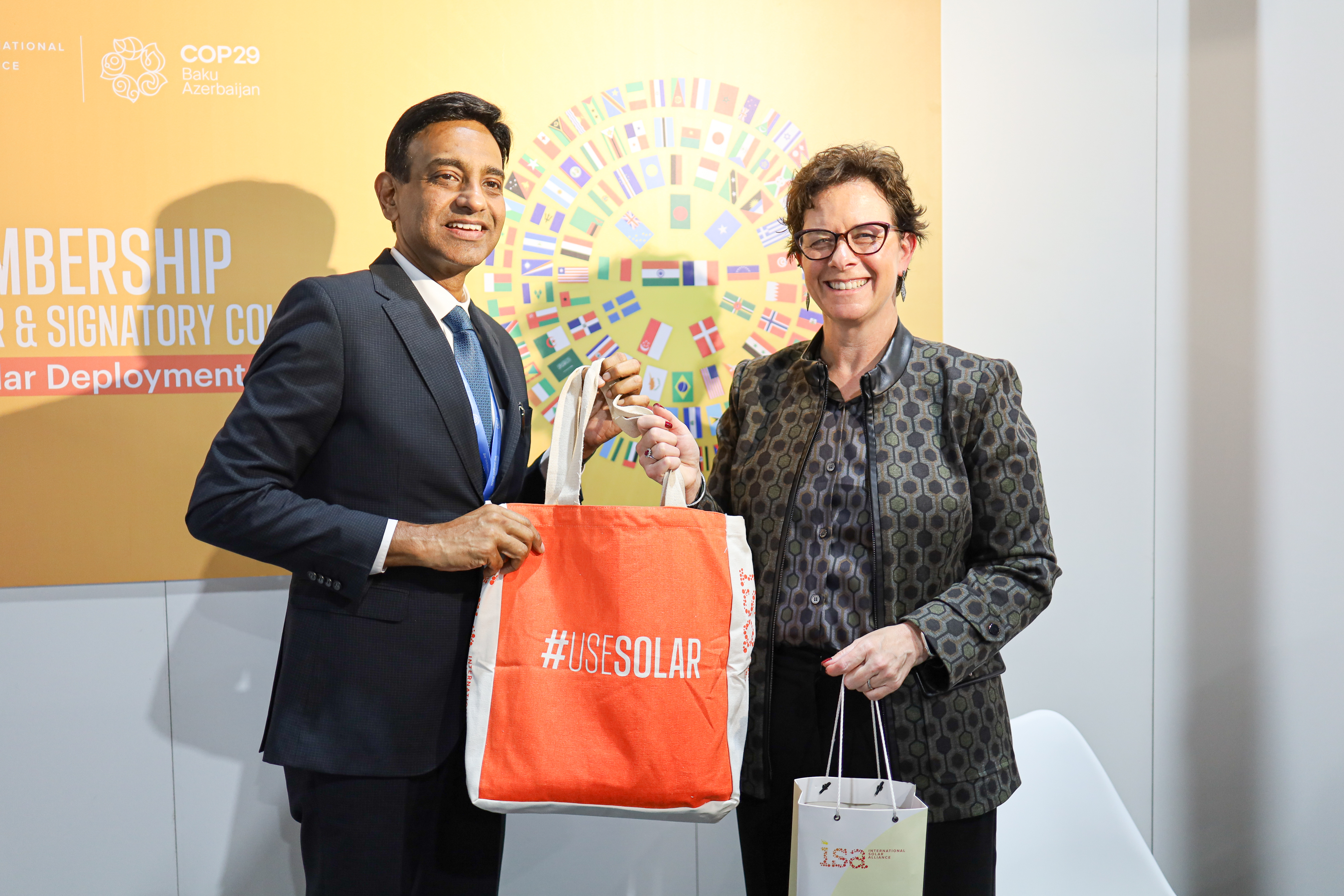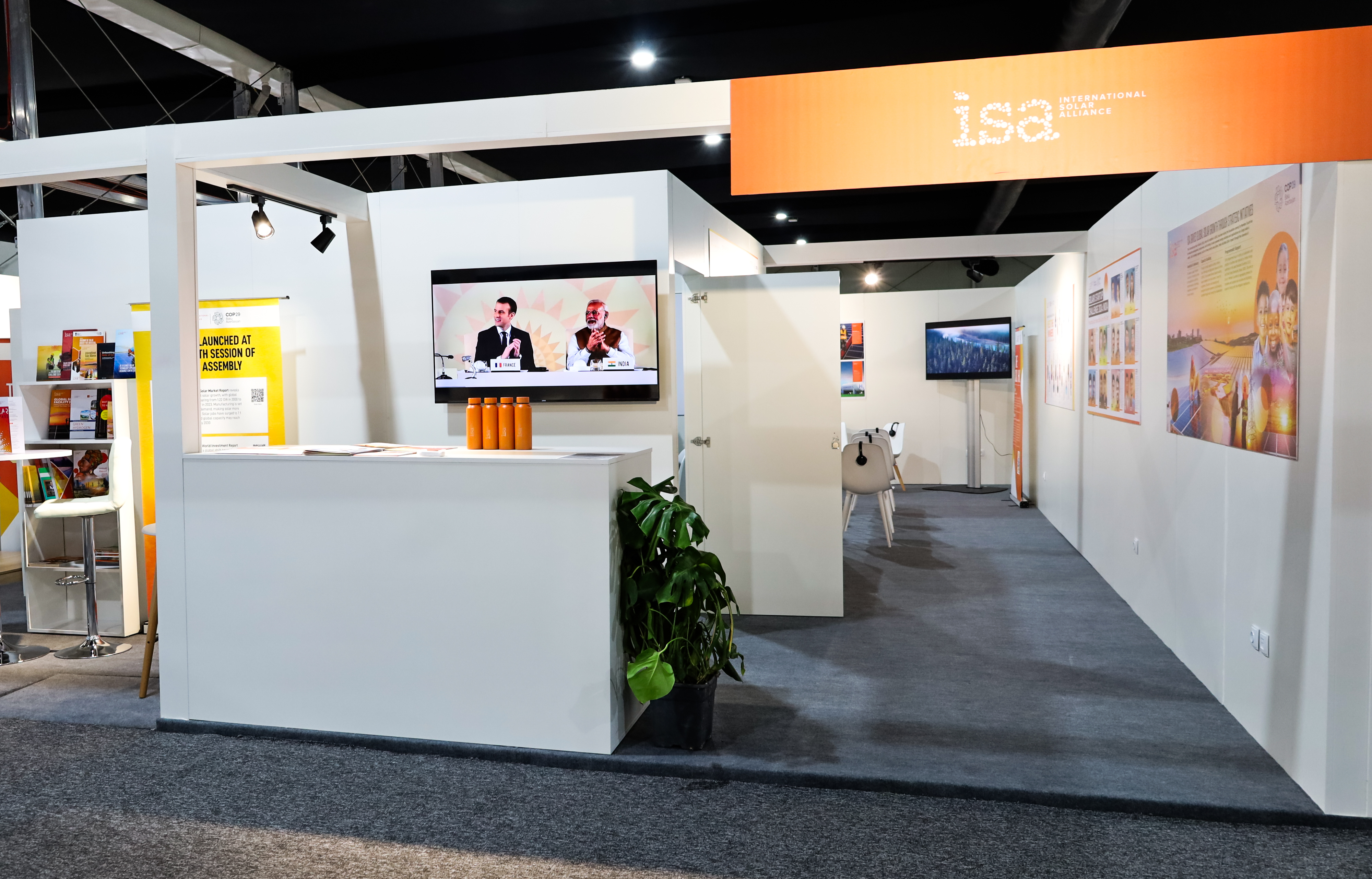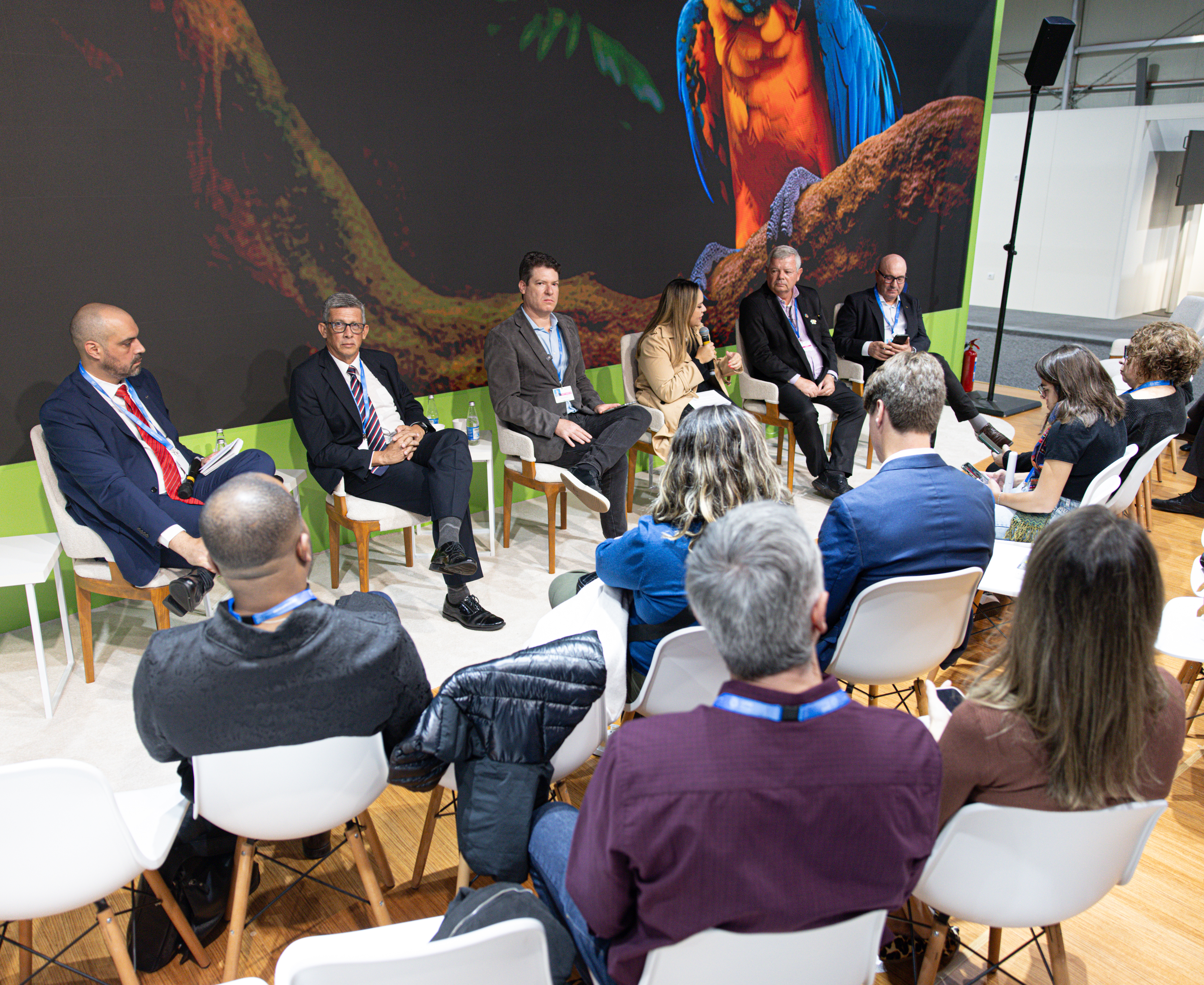ISA AT COP29
Easing Solar Energy
ISA’s journey as a global advocate for solar energy has grown significantly from COP27 to COP28 and now in anticipation of COP29. At COP27, ISA’s inaugural pavilion served as a vibrant hub of innovation, hosting over 26 sessions, more than 130 expert speakers, and unveiling key initiatives like the SolarX Startup Challenge, the “Our Solar Future” roadmap to mobilise USD 1 trillion by 2030, and the Solar Finance Facility. Building on this momentum, ISA expan ded its impact at COP28 in Dubai, where its 'Solar Hub' Pavilion hosted 35 sessions in collaboration with 15 Member Countries and 15 international organisations. Looking ahead to COP29, ISA is set to further advance solar solutions for sustainable development, with a focus on achieving SDG 7 and 13, through even broader programming and deeper engagement in critical discussions.


